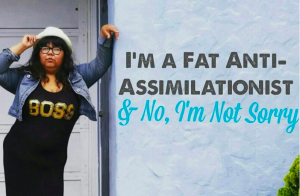If you follow news about the mainstream publishing industry, you might have heard about Michael Derrick Hudson, the white writer who appropriated a Chinese pen name in order to get published.
Hudson’s claim that affirmative action limited his chances of being published as a white man confused me. After all, there aren’t really that many writers of color in mainstream publishing.
Publishing, especially mainstream publishing, is still a largely white field. And in spite of what Hudson might think, that needs to change.
The thing is, if it’s going to change, white people need to be part of the effort. The reality is that publishing isn’t a business where you make it based solely on talent. If that were the case, then more writers of color would be famous and successful.
Instead, publishing is a business where you have to have resources – especially connections to the right people. There’s a reason why the New York Times’ Young Adult bestsellers list includes so many people that John Green has promoted.
White people hold most of the resources in the publishing world, just as they do in pretty much every other field. That’s why it’s important that you’re part of the effort to bring more writers of color into the industry.
Why support writers of color?
Because the things we have to talk about are relevant to other people of color. Because white writers and their work very rarely speak to our experiences.
Because in spite of what the mainstream publishing industry wants us to believe, white people’s experiences aren’t universal – they’re actually informed by privileges that people of color don’t have.
Take Jack Kerouac, for example. I recently read an article that reveals his misogyny and obsession with Marilyn Monroe. Kerouac and the Beat poets are considered iconic American writers, but what can I, as a queer Asian femme, learn from On the Road?
Well, I can learn that 1) I wouldn’t be able to travel as safely as he does and 2) I’d be nothing more than an object to him, too. I don’t think that’s what teachers who assign the book want me to get from it, but that’s how it is.
So you can see how my experience with “canon” literature might be more than a bit alienating. That’s why it’s so important for writers of color and their perspectives to be published and promoted.
Having white writers write characters of color isn’t good enough (or, to be honest, not advisable – the priority is to provide space for authors of color to write their own narratives). First of all, it’s too close to white saviorism. Secondly, white writers don’t have the experience to write people of color the same way we can write ourselves.
And in the end, it boils down to one question: Shouldn’t people of color be allowed to write, too?
Spoiler alert: We do, but we aren’t getting the opportunity because white people hold the resources.
More than 80% of the mainstream publishing industry is composed of white people. If writing and the creative arts in general are supposed to broaden our horizons, isn’t it time that we begin making room for other voices and perspectives?
I think it is. And whether you’re in the publishing industry or just a casual reader, there are things you can do in order to start that change.
1. Hire Writers of Color
Even if you don’t work for a publication, you can ask the magazines or websites you read to include more writers of color.
As a white person, your voice will be listened to.
For people who do work for publications, hiring writers of color doesn’t mean asking them where to find other writers of color. It also doesn’t mean hiring the same writers over and over again.
If you’re dedicated to looking for writers of color to contribute to your publication, you should also be dedicated to the work it takes. Here’s a good place to start: a handy database of writers of color, what they write about, and even some sample pieces.
When I say don’t hire the same writers over and over again, I mean asking yourself if you’re only hiring men or straight, cisgender people.
In other words, are you paying attention to intersectionality?
Think about who you’re hiring to write about what subjects, too. People of color are not all the same. We can’t write about each other’s experiences equally.
For example, I wouldn’t accept a commission to write about Black people’s experiences because that’s not my lane. What do I know about it?
Hire people to write about their own experiences. Don’t just hire people you feel comfortable with approaching, or who you think will say what you want them to say.
2. Pay Writers of Color
I understand if your publication has limited resources, but we writers of color have limited resources, too. Our work requires time and effort, so it’s unfair to expect us to do it for free.
I recently talked to my partner about this, and she said something that made me think: Publications try to hire writers of color in order to be more diverse, and that benefits the publication.
But if the publication doesn’t pay, then how does the writer benefit? The exposure isn’t really worth it if you’re not able to pay your next bill, even though you spent so many hours on a particular piece of writing.
In short, when you ask writers of color to contribute to your publication for free, you’re asking us to benefit you by boosting your “diversity” credentials – all without providing anything for us.
As important as diversity is, that’s not fair to writers of color. The work that we do is valuable and deserves to be compensated.
If you can’t pay writers of color, that’s okay. Just remember that we aren’t being rude if we decline to submit something to your publication.
And if you don’t work for a publication? Donate! Check your favorite writers’ websites or Twitter profiles. Chances are, if they’re a writer who hasn’t been widely published, they’re in need of donations. It doesn’t have to be a lot, either – it’ll be appreciated either way.
3. Hire Writers of Color to Staff Your Publications
If you’re only hiring writers of color to write for your publication, then you’re kind of doing the same thing as not paying us: You’re getting us to provide diversity kudo points for you while not really changing anything.
Change doesn’t happen through recruitment but through shaking up the foundations of your publication.
Maybe there’s a reason why writers of color aren’t submitting to your magazine. They could feel unwelcome, or they may be wary that the staff won’t be open to the nature of their work.
And let’s be real: Sometimes you won’t be.
White privilege seeps down into your subconscious, where it influences the way you think about things. You might see the work of a writer of color differently than another writer of color would, which is why it’s good to hire staff of color for your publications.
Think about the conversation between Matt Damon and Effie Brown (or, rather, the whitesplaining session). What does diversity onscreen matter if the people behind the cameras are white?
White people would still be calling the shots (literally!), and that’s not real change.
4. Make an Active Effort to Read Writers of Color
After all, it’d be kind of weird if you just published writers of color without knowing what they have to say, right? Part of making change is changing yourself, so read writers of color. Be open to what they have to say.
And just as you would when hiring them, make sure that you’re reading a wide range of writers, not just cisgender, heterosexual men.
Also keep in mind that white privilege is ingrained in you.
It’s likely you’re reading these works through a skewed lens, and you need to constantly check yourself to see if you’re doing that.
For example, do you find an Asian American writer inscrutable and their prose incomprehensible?
It might not be their writing. It might be because we’re taught to see Asian people, and Asian writers by extension, as mysterious, convoluted, and unable to write English.
If you’re a teacher, teach writers of color in your classroom. Help your students of color find writers of color that are relevant to them.
So many students of color give up on reading because they feel alienated from the books they have to study – if you teach, you can help change that.
5. Don’t Put Expectations on What We Should Write
When I was an undergraduate, there was an Asian American theater group at my university. I watched one of their shows during my first year and enjoyed it because it featured a play about a Chinese American family.
Over time, however, the plays had less and less to do with Asian Americans and featured fewer and fewer Asian American actors. The people who wrote the plays were often white.
When I asked someone in the theater group why there weren’t more plays with Asian American themes, they told me that it was because people in the group felt that doing so would limit the things they could talk about.
In other words, people thought that if they were to center Asian American issues, they would be expected to write about certain things, like immigration, the generation gap, or a “hyphenated identity.”
I was mad at the theater group at the time. I still am, but I realize now that it’s not entirely their fault that they thought talking about Asian Americans meant only talking about a few select things.
Most of the books published by Asian American writers involve themes about family and identity. More often than not, they feature a protagonist who must uncover a family secret and grapple with their dual Asian and American identities
There’s nothing wrong with talking about those things, but it becomes a problem when Asian American writers (and writers of color in general) are expected to only talk about them.
In other words, it’s a problem when they’re expected to define themselves by the narratives that white people are comfortable listening to.
That’s what it boils down to: There are certain people of color narratives that white people are comfortable listening to. They’re the ones that get published most often, while other narratives are passed over.
For Asian Americans, the expected narrative talks about our otherness, our navigation between a “traditional” Asian world and a “modern” American world, and our ultimate assimilation when we give up certain elements of our Asian culture in order to become true Americans.
I’m not saying that writers of color shouldn’t talk about race. I’m just saying that the ways we’re expected to do so are often ways that highlight our otherness so white people can have a voyeuristic look into our experiences.
If other writers of color want to talk about issues of immigration and assimilation, that’s their prerogative. But that’s not what I want to talk about, and it’s not what other writers of color have to if they don’t want to.
We have to be able to own our own work, not write for the consumption of others.
6. Pay Attention When Writers of Color Express Themselves
I’m sure you’re familiar with that one person who always says they want to help, but actually means “I’m going to tell you how to do everything, because if you did it my way, you wouldn’t have any problems.”
Please don’t be that person to people of color.
If there’s something we say that you can do to help us, then do that thing, or at least pass the word on to other white people.
And if a writer of color tells you you’re being racist, either in your writing or in your reaction to a writer of color’s work, please listen. Believe me, we’re quite sure of what is or isn’t racist.
***
The fact is, there aren’t enough writers of color being published, and it isn’t a problem because there aren’t enough of us.
There are plenty of us – we’re working hard, trying to find an opening to succeed.
It’s just hard to do so when so many of those openings are held by white people. You might feel like you, as an individual, can’t do much to change the way things are. But I hope that this article has shown you that there are important things you can do.
Writers of color are talented, fierce, and have important things to say – and it’s about time we started making room for their voices.
[do_widget id=’text-101′]
Kerry Truong is a Contributing Writer for Everyday Feminism. They are a queer diasporic Vietnamese womxn and graduated this spring with a double degree in English and Asian American Studies. When they’re not philosophizing about this at length, they’re reading, taking long walks, or cooing over all the dogs who cross their path. Read their Everyday Feminism articles here.
Search our 3000+ articles!
Read our articles about:
Our online racial justice training
Used by hundreds of universities, non-profits, and businesses.
Click to learn more





















